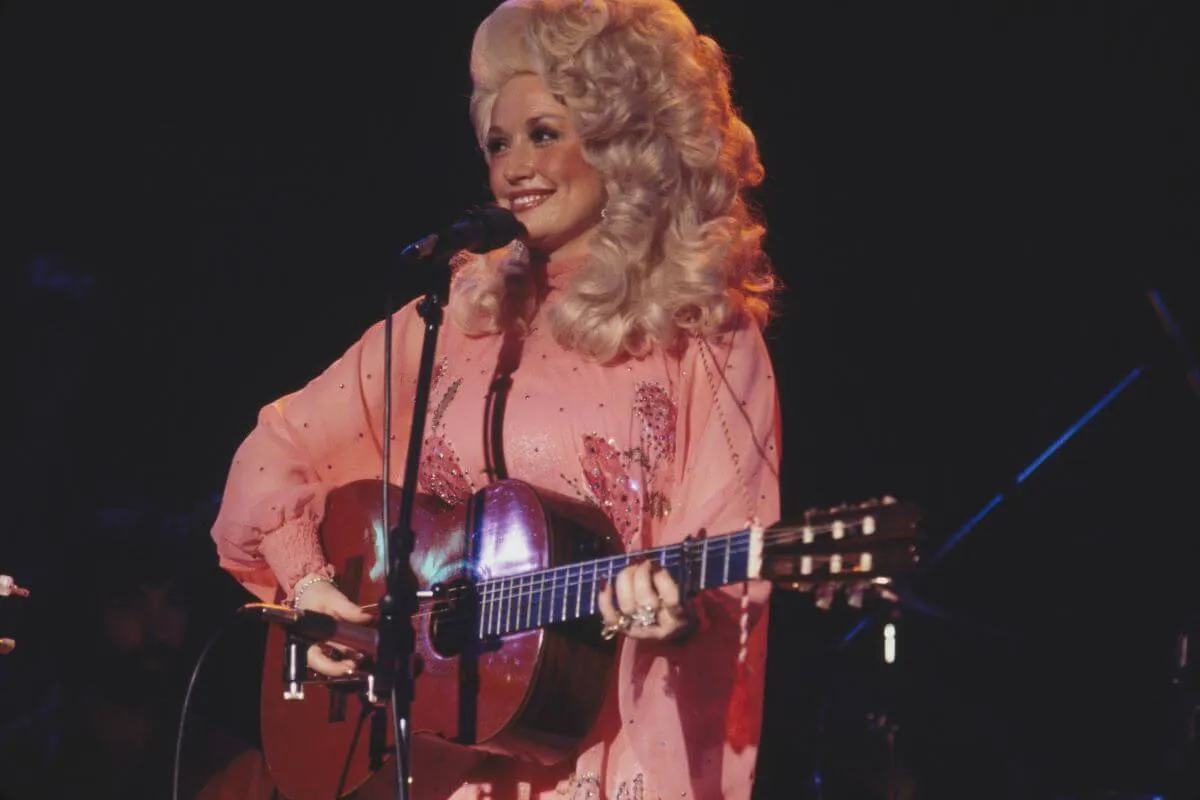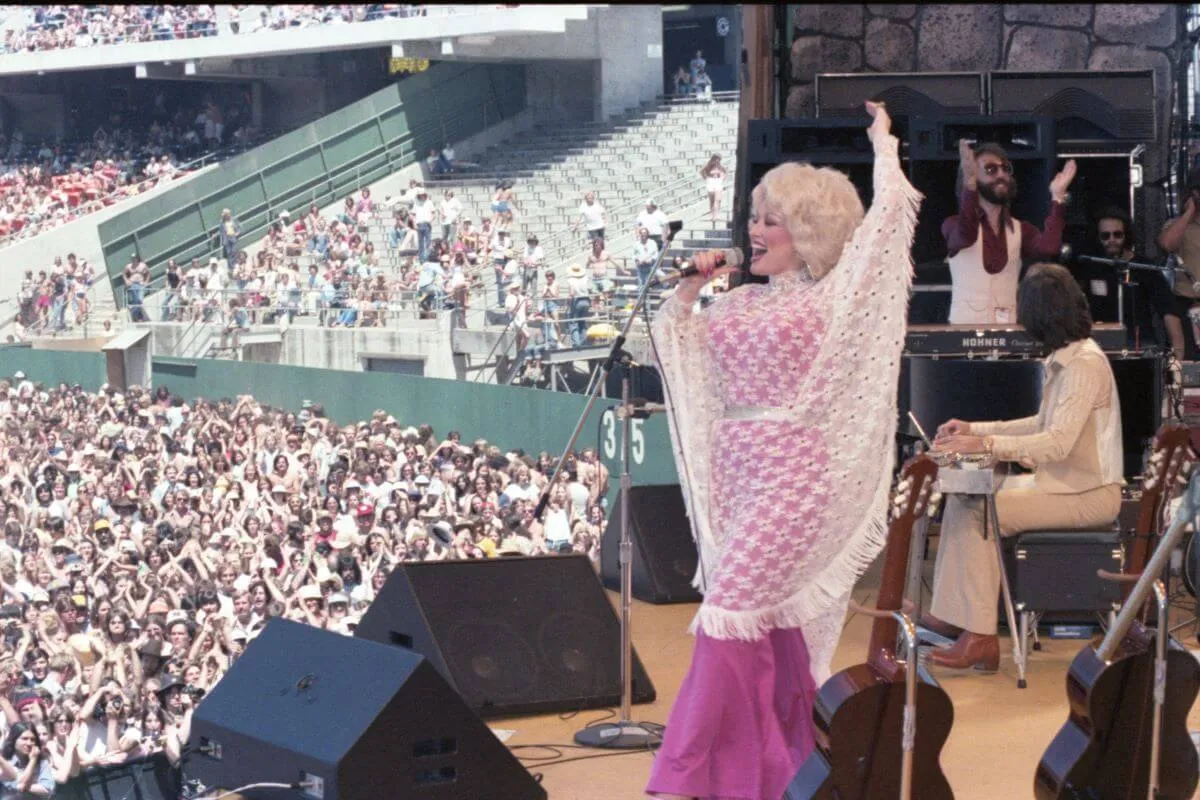
Dolly Parton Was ‘Afraid to Appear Human,’ Said 1 Interviewer
Dolly Parton has spent her career cracking jokes at her own expense and telling stories of her humble beginnings in Tennessee. It’s worked well for her, as she has maintained the support of her dedicated fan base for years. In the 1970s, though, one reporter said Parton didn’t seem to want to be human.
Dolly Parton seemed afraid to be human
When Parton crossed over to the pop charts and became more of a mainstream celebrity, many people didn’t seem to know what to do with her. She wore exaggerated outfits, wigs, and makeup and cracked jokes about herself, but she was clearly a talented artist. Journalists began publishing pieces to see if she was really the way she presented herself. Dave Hershey of the New York Daily News did not believe she was fully genuine.
“I was sent down to do the ‘Dolly Parton — Is She For Real?’ story— what’s behind the cornpone charm,” he said in the book Dolly by Alanna Nash. “And it’s a very well-cultivated act, I think. I tried to catch her at odd moments when she wasn’t hooked into her stage persona, but she always seems to be on. She’s just a very, very charming person, and you can’t catch her with her guard down. I’ve done a lot of big-time celebrities in the last year and a half, but she is as tough to catch off-guard as anybody.”

Hershey said Parton dodged questions about her childhood, which made him believe she wasn’t genuine.
“She’s very guarded about her childhood. Everytime I would say, ‘It sounds like you had a miserable childhood,’ she would say, ‘Oh, no, no, it was really quite happy, joyful. I’m not like Loretta Lynn. I’ve had a very happy life,’” he said. “She’s afraid to appear human, and that’s sad. It’s just a matter of time before people see through it. I went out there totally objective, and I could tell it was an act the whole time.”
Parton has spoken frequently about her childhood over the years. She has said that while the family was poor, they were happy.
Another journalist believed she was genuine
Though Hershey believed Parton wasn’t the real deal, other journalists didn’t think it was all an act. Journalist Joan Dew thought Parton would have to be the greatest actor in the world to completely conceal her true self.
“She can convince me of anything in an interview,” Dew said. “You’ve heard all these stories about her marriage being an arrangement, and you’ve heard that she is so ambitious that nothing stands in her way. And then you spend an hour with her, and she shines those big blue eyes on you, and that soft, little-girl voice, and she’s sweet. There’s a sweetness, an innocence about her, that can’t be all phony. Unless she’s the world’s greatest actress.”
Dew believed that all the glowing interviews of Parton backed up her belief.
“Have you ever read a cynical, bitter interview with Dolly Parton? An interview where the reporter doubted in print her sincerity?” Dew asked. “Never. And you probably never will. Did you read the Rolling Stone interview? Now, you know how cynical they are. The guy was eating out of her hand!”
Dolly Parton said she created a persona for herself when she became famous
Parton said she tries to present herself truthfully to the public, but she admitted she created a persona when she rose to fame.

“I look one way and am another. It makes for a good combination,” she said, per the book Dolly on Dolly, adding, “I always think of ‘her,’ the Dolly image, like a ventriloquist does his dummy. I have fun with it. I think, what will I do with her this year to surprise people? What’ll she wear? What’ll she say?”
A number of celebrities have said they do the same thing in order to manage fame.


